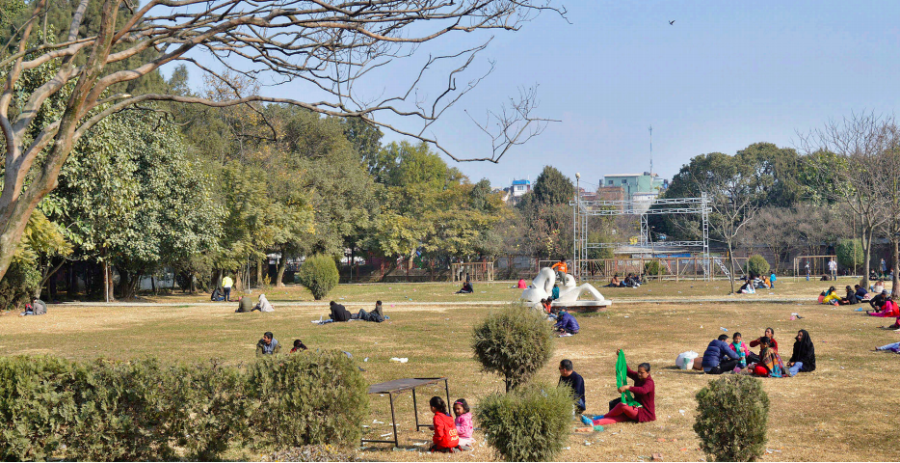National
Social Welfare Council’s plan to build convention centre in Bhrikutimandap draws flak from conservationists
Earlier in June, Kathmandu Metropolitan City had proposed building a multi-purpose commercial hall in the space
Prithvi Man Shrestha
The Social Welfare Council is planning to develop an international convention centre in Bhrikutimandap, just a month after it vociferously denounced a similar plan proposed by Kathmandu Mayor Bidya Sundar Shakya.
The council, which has been running exhibition and convention centres in the government-owned land, had earlier refused to vacate the property for the city authority to build a multi-purpose commercial building, arguing that the venue centres were its chief source of income.
Even urban planners and conservationists had strongly protested Mayor Shakya’s plan to develop over few remaining open spaces in the Capital city.
Now it is the council that wants to build in the space, inviting concerns from conservationists and urban planners.
On July 16, the council announced a plan to build an international convention centre in 214 ropanis of land by issuing a notice calling for proposals from interested developers to prepare a master plan within 30 days.
The council has defended its plan amid criticism from conservationist groups who say the city needs the open space for clean air.
Durga Prasad Bhattarai, information officer at the council, said that the council’s plan will occupy far less space than what the Kathmandu Metropolitan City had proposed.
“There will also be a children’s park within a greenery belt,” he said. “But how exactly the space will be utilised will be based on what types of designs are presented by experts.”
But heritage conservations say that the council’s plan mirrors that of Kathmandu Metropolitan City.
The city authority plans to build a multi-purpose commercial building over 26.6 acres of land, with six meeting rooms, three conference halls, an auditorium and an exhibition centre. The Rs 12 billion plan also included a parking space for 1,000 cars, a food court and restaurants.
“We have been opposing the city’s plan and now we are opposing the plan unveiled by the Social Welfare Council,” said Alok Siddhi Tuladhar, a heritage conservationist. “We need open space at the core area of the city because it is difficult to get clean and clear air at the centre of the city.”
Bhrikutimandap is the only remaining open space in the heart of Kathmandu. The two other spaces, Tundikhel and Khulla Manch, have already been encroached upon.
The Khulla Manch area has been converted into a bus park after the previous bus park area was vacated for the purpose of remodelling it. The remodelled bus park is supposed to have a 29-storey view tower among many other amenities. The city authority had awarded the contract to Jaleswar Swachhand Bkoi Builders. Several years have passed since the contract was awarded, but the contractor has still not completed the project.
Over the years, the Khulla Manch area, which was originally supposed to be a temporary bus park, has been encroached upon by shopkeepers and other business operators.
Sanjaya Adhikari, who often files public interest litigation for the preservation of nature, culture and heritage, told the Post that the plan to construct buildings in Bhrikutimandap by disregarding the need for open space violates the constitutional rights of people to live with dignity and in a clean environment.
Article 30 of the constitution has made a clean environment a fundamental right.
Both Adhikiar and Tuladhar said that the government does not have the authority to use the land for purposes other than providing public open space, as they were first acquired from the people with the same promise.




 20.12°C Kathmandu
20.12°C Kathmandu















